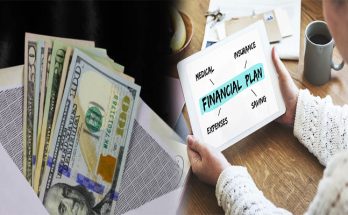Achieving financial independence is a major goal for many people. Financial independence means having enough wealth to cover your living expenses without needing to work for a living. With proper personal finance planning, you can create a roadmap to achieve financial independence and enjoy a comfortable lifestyle. In this article, we’ll share some tips that can help you achieve financial independence.
Develop a Budget
The first step towards achieving financial independence is to develop a budget. A budget helps you plan your spending and ensure that your expenses don’t exceed your income. The budget should include your income, living expenses, and savings goals. By tracking your spending, you can make informed decisions and identify areas where you can cut back to save more.
Invest in a Retirement Plan
Investing in a retirement plan, such as a 401(k) or an IRA, is a crucial aspect of personal finance planning for financial independence. Take full advantage of any employer-sponsored retirement plans, especially those that match a portion of your contribution. Investing in a tax-advantaged retirement plan saves you money on taxes and ensures that you’re building a nest egg for your retirement.
Eliminate Debt
Debt is a significant obstacle to financial independence. Focus on paying off high-interest debt, such as credit card balances, personal loans, and car loans, as quickly as possible. Avoid taking out more debt and create a debt payoff plan to get rid of other debts systematically. By eliminating debt, you free up more income to invest and save towards your financial independence goals.
Create Multiple Income Streams
Creating multiple income streams is another key personal finance planning strategy for achieving financial independence. Building additional income streams helps you diversify your earning potential and reduces your reliance on a single source of income. Consider starting a side hustle, investing in real estate, or developing passive income streams such as dividend-paying assets.
Build an Emergency Fund
Building an emergency fund is essential in personal finance planning for financial independence. Financial emergencies can arise, which can quickly drain your savings if you’re unprepared. Aim to have six to 12 months of living expenses in your emergency fund to help you weather temporary financial setbacks.
Educate Yourself
Finally, educating yourself is crucial in personal finance planning for financial independence. Learn about personal finance basics, investment strategies, and financial planning techniques to help you make informed decisions about your finances. Read personal finance books, attend financial education courses, and seek out the advice of qualified professionals, such as financial planners.
Achieving financial independence requires a combination of personal finance planning strategies, including budgeting, debt elimination, saving, investing, and education. By following these tips, you can get closer to your financial independence goals and enjoy greater financial security and freedom.





